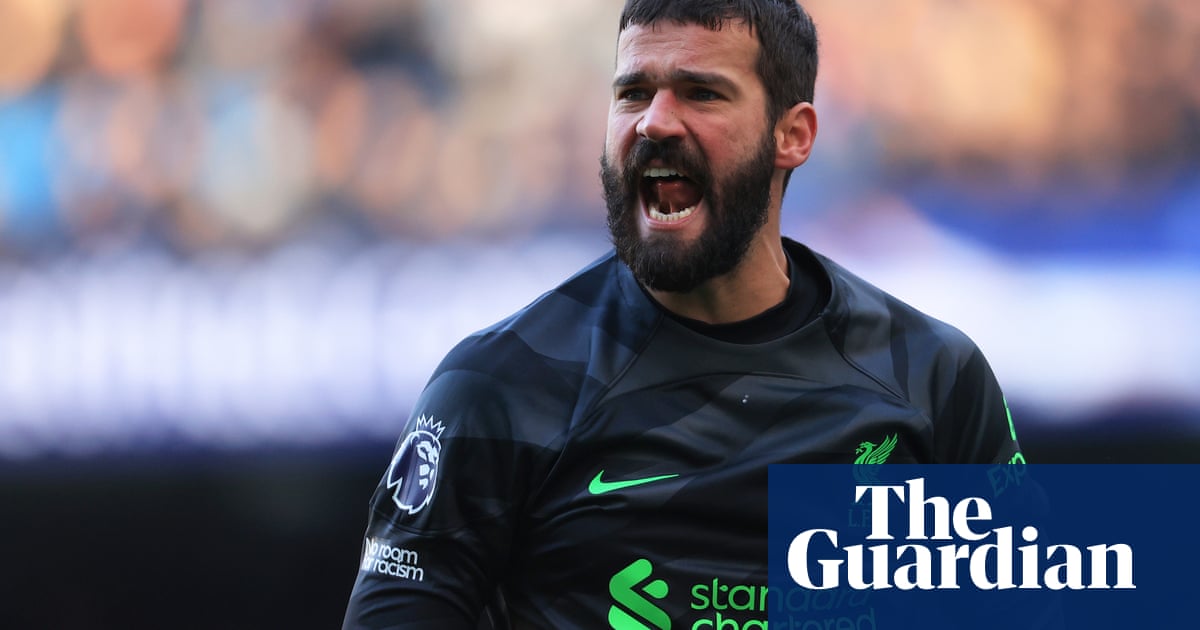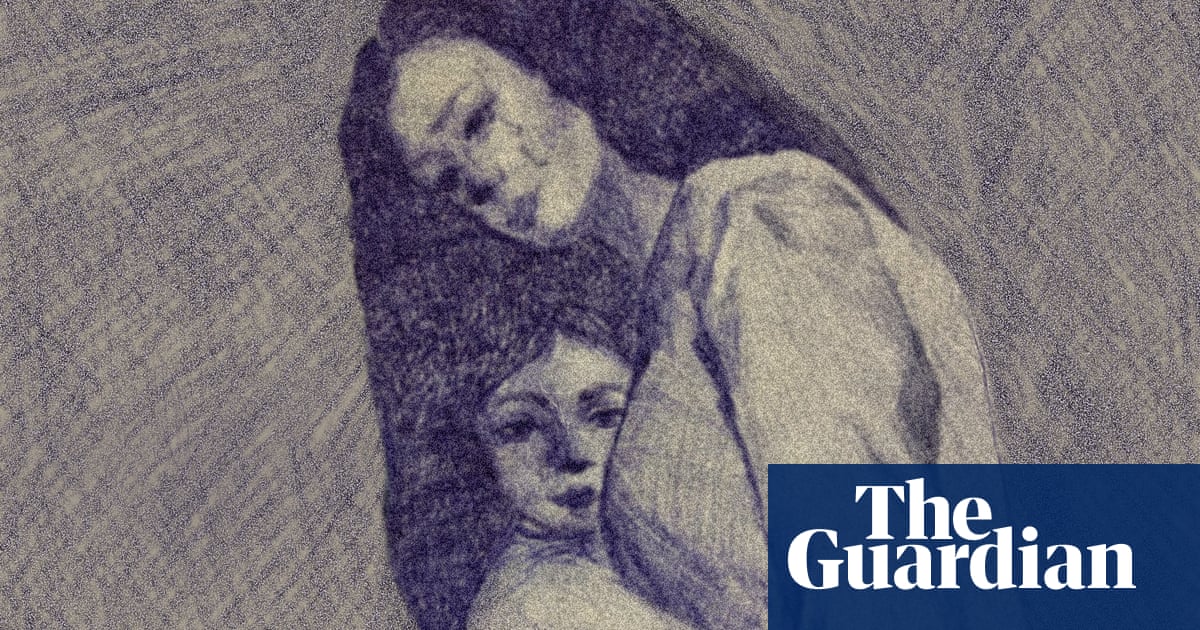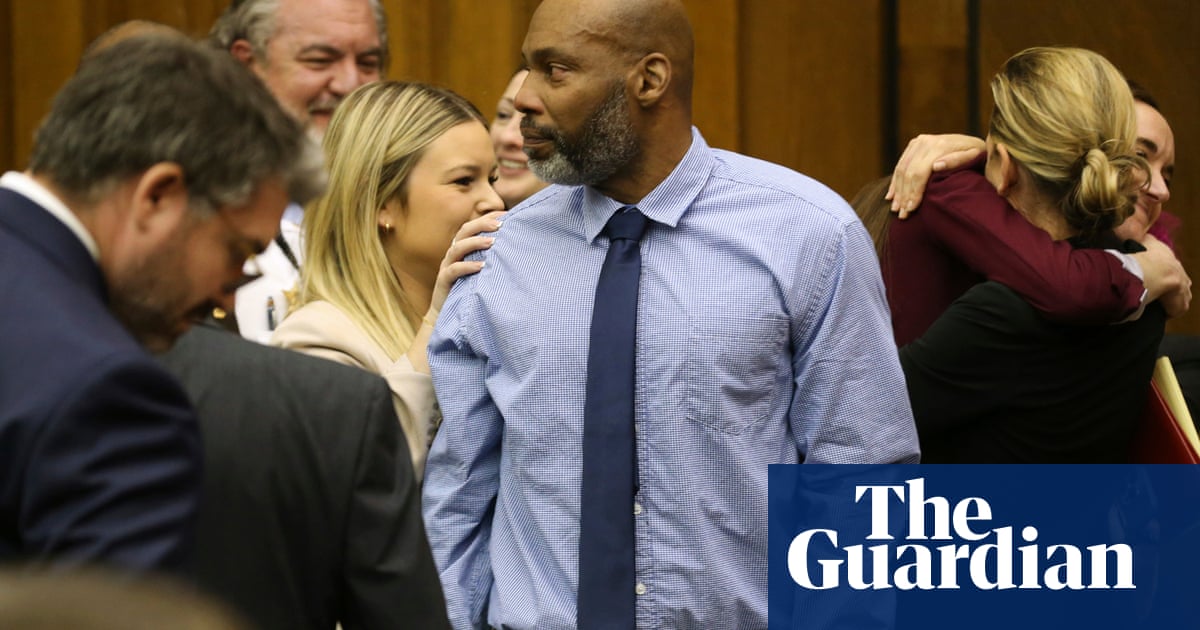
John Barnes tells a story about a season-ticket holder at Liverpool who would become a friend and whose seat was in front of two men at Anfield having a conversation about Barnes’s proposed transfer from Watford in 1987. “Not sure about black players,” one said to the other. “Don’t know about their character.”
A few months later, on his home debut against Oxford United, Barnes scored a superb goal following a free-kick. The same bloke turned to the other, within earshot of the man who would later relay the tale to Barnes, and said: “You know, he’s not as black as I thought he was.”
Barnes has heard and seen it all. From the racist chanting at Chelsea on his debut for Watford as a 17-year‑old, to being called a “sambo” by National Front sympathizers who somehow made it on to a plane carrying England on a tour of South America in 1984. This was just a few days after he scored that amazing, mazy goal in the Maracanã in a 2-0 win over Brazil.
Thus is the man who won 79 England caps the perfect person to address the issue of racism and racial abuse that has threatened to accompany Russia’s World Cup. His take on it, and the recent hot topic of whether players should walk off the field if subjected to abuse, is not what might be expected, however.
“Yes, I went through overt racism as a footballer in the 80s and early 90s but that was, or is, nothing compared to what the average black person in the inner cities of England goes through every day,” he says.
“I’m John Barnes, high-profile footballer who had bananas thrown at him during a match, and ignorant people shouting racist abuse at him for 90 minutes – before getting into my big car and driving to my nice house – but is that as bad as the huge majority of black people who live in squalor and have no hope for themselves or their children being given an equal opportunity socially, economically or educationally?”
Barnes believes you cannot separate football from society. He advances a potent, trenchant argument. “Since I’ve been involved in professional football, it’s as if the rest of society is OK but football has a long way to go. Nothing could be further from the truth. As I’ve been saying for decades, as long as racism exists in society, it will exist in all facets of society. Until we eradicate it from society, football will be like any other industry.
“Before we are footballers or fans, we are ordinary members of society. We are doctors, lawyers, milkmen, postmen, unemployed people, students … So why are they called racist football fans? Are they just racist for the 90 minutes of a match, when the other six days a week they’re not?”
Born in Jamaica, Barnes came to England when his army colonel father, Kenneth, who had played football himself for his country, became military attaché to London. Later, in 1984, as his Watford side prepared to face Everton in the FA Cup final, Barnes was waiting for his dad in the Lillywhites sports shop at Piccadilly Circus when he was asked to leave by staff concerned he might be a shoplifter. His cultural heritage and such experience gives him huge historical insight.
“Racial discrimination is understandable due to the narrative that has been spun to us for the last 500 years about the worthiness, morality, and intellect of a certain group of people in relation to other groups, particularly black people,” Barnes says. “So the fact that we are now being told we are all equal … Well, it will take a much more substantial effort than ‘We are all the same’ to change a widely held belief through mistaken colonial history that was taught which wrongly convinced us that white people are superior.
“We hear a lot of ‘black players should’, or ‘black people should.’ Are we all sheep who should act a particular way because we are all the same and aren’t individual people?
“Would we ever say ‘white people should’? No, because we individualize white culture. French, Spanish, German, English are accepted as being so different from each other. But we are just ‘black people’. African society and culture varies much more than European society but it’s just considered ‘Africa’ as if they are all the same.”
Early this month, Barnes called in to a TalkSport debate about whether England’s black players should walk off the field should they be racially abused in Russia. He felt compelled to discuss the issue – heatedly – with the black journalist Darren Lewis, who believed they should.
“I know and respect Darren and get on well with him,” Barnes says, “but I believe that rather than look at Russia, let’s look closer to home before we start to throw stones. I used as an example his profession of journalism. I said how underrepresented ethnic and black people are in the mainstream media.
“He started to name four or five black journalists who work in that industry. Chris Hughton could do the same when asked about the lack of black managers by mentioning the four or five there are. We all know it’s a problem. But rather than talk about racism in Russia, or football, I prefer to talk about inequalities in society which are much wider and accepted.”
So should Raheem Sterling, Dele Alli et al walk off if abused? “Well, it depends on your interpretation of racist abuse,” Barnes says. “If one idiot in the crowd shouts at you, and you are the only one who hears, you are being told that you are fully entitled to walk off. Really? Just one? More? Many more? What form? Booing every time a black player gets the ball isn’t illegal, even though you know why the fans boo. It’s too ambiguous.
“We are told our young black players have strong views. As if older black players didn’t have strong views. And that walking off shows their strength. I wouldn’t honor black players of the past who went through much worse than I did by walking off the field to show my ‘strength’ because some ignorant fool shouts racist abuse. I preferred to carry on and do what I did best.
“That said, I would never advise a young black player to walk off or not walk off the field regardless of how I dealt with it, because we are all different. Again, the ‘black players should’ line … I find it insulting to suggest we are all the same.
“Racial bias is not just about verbal or physical abuse. It’s also about the perception society has of the ordinary black person when they apply for jobs or credit, or who we believe to be more worthy, intelligent or moral. Which form of discrimination is worse?”
It is those without a voice he feels the need to speak up for, or help to find their own. “It has always embarrassed me when people from the black community feel sorry for or support me and other black high‑profile members of society, such as actors and singers,” he says.
“I feel like shaking them and saying: ‘What about demanding equality and dignity for yourselves and your children?’ Have they become so devoid of hope for that, that they vicariously feel pride through a ‘superstar’ black person making it? Until the black person in the street is seen as equal, black people will never be equal.”
There remains, as he continues with his trademark machine-gun delivery, a fierce passion for football and life. “A black friend said that while he supported Liverpool, he would never go to watch until they signed an average black player. He meant that while Liverpool have signed countless average white players and no one batted an eyelid, a black player had to be better than the average white player or the narrative would be that black players aren’t good enough.
“If we really want to be considered equal, the testament to that wouldn’t be great black people being successful, it would be average black people being as successful as average white people.”The Guardian Sport












